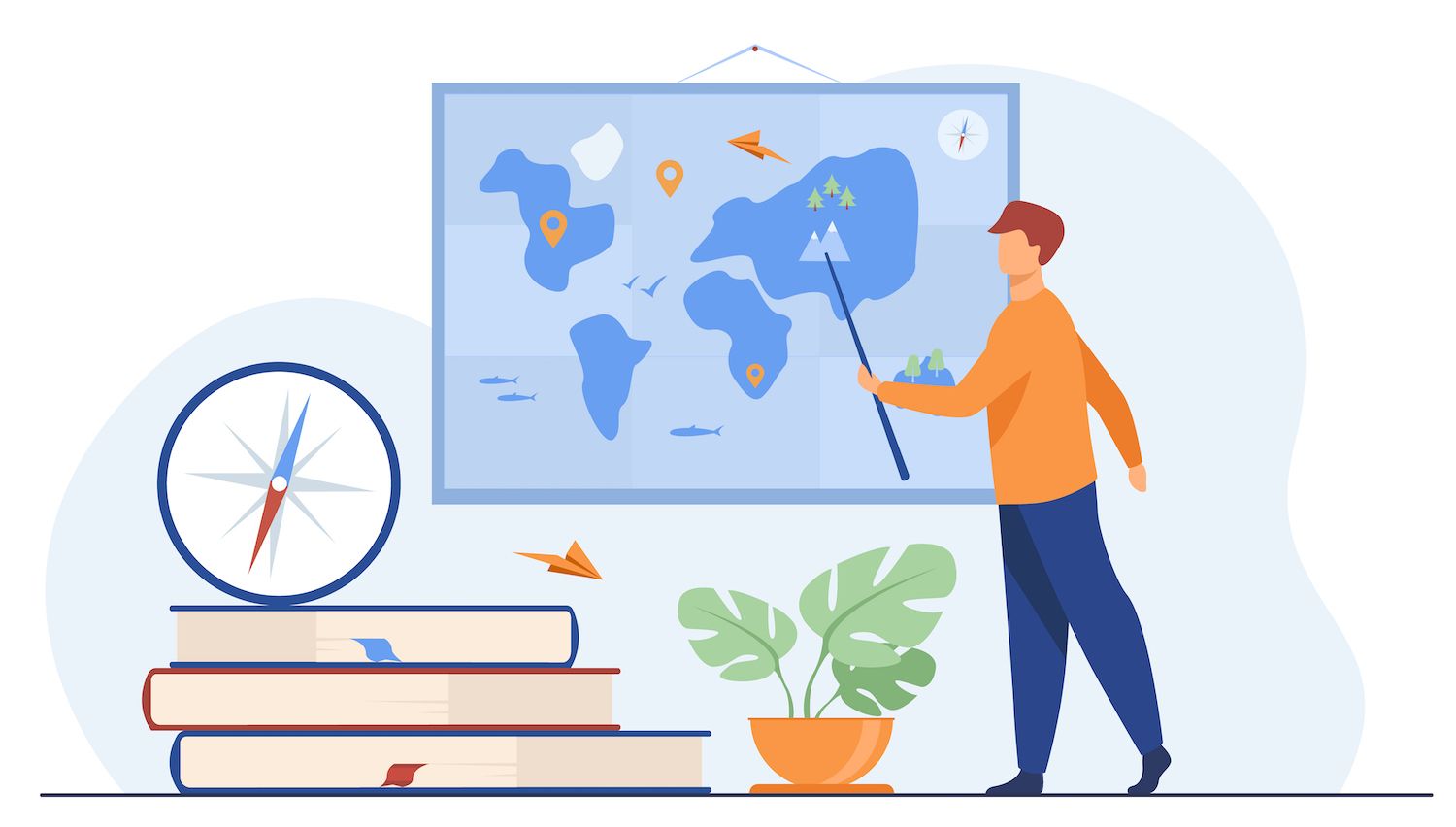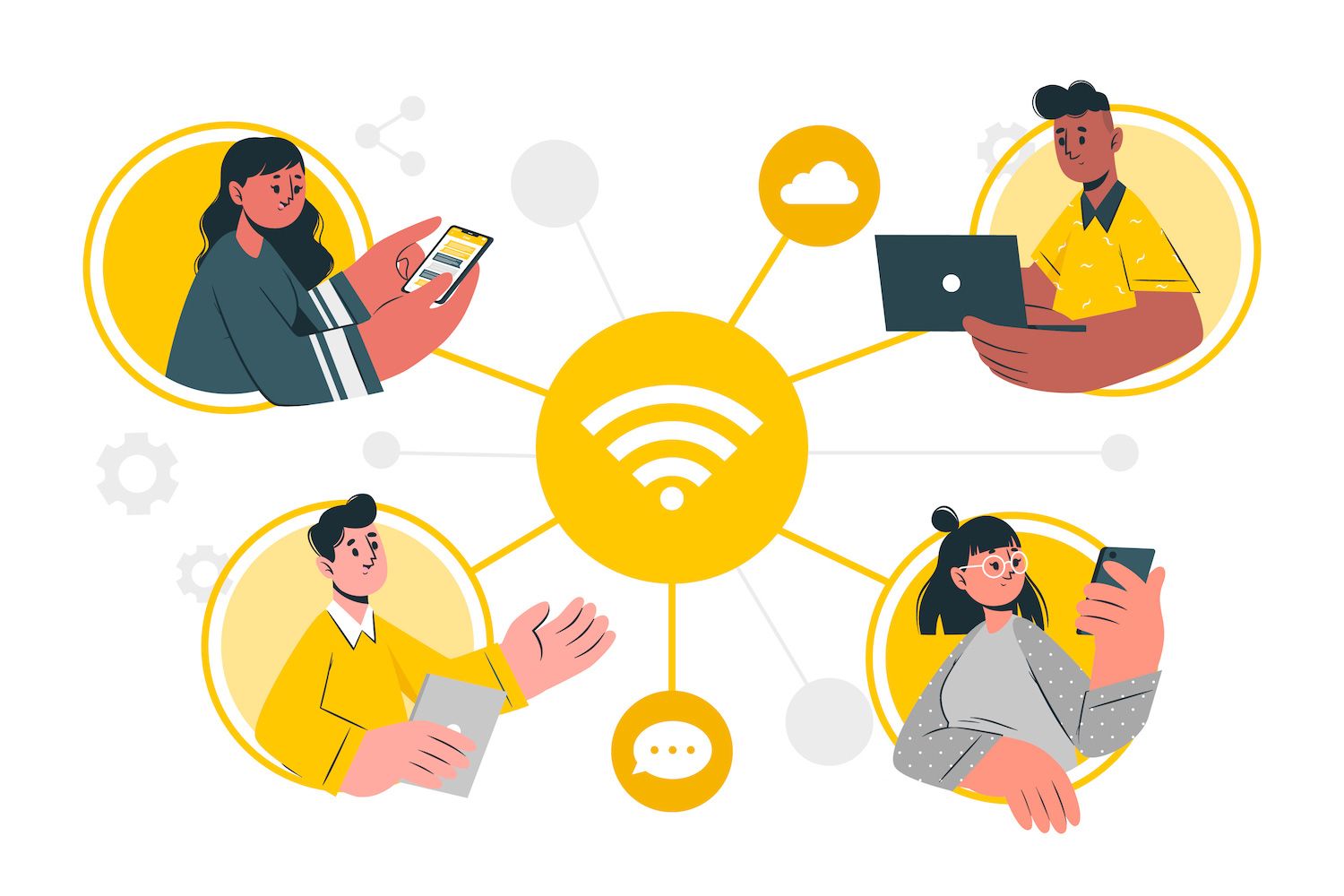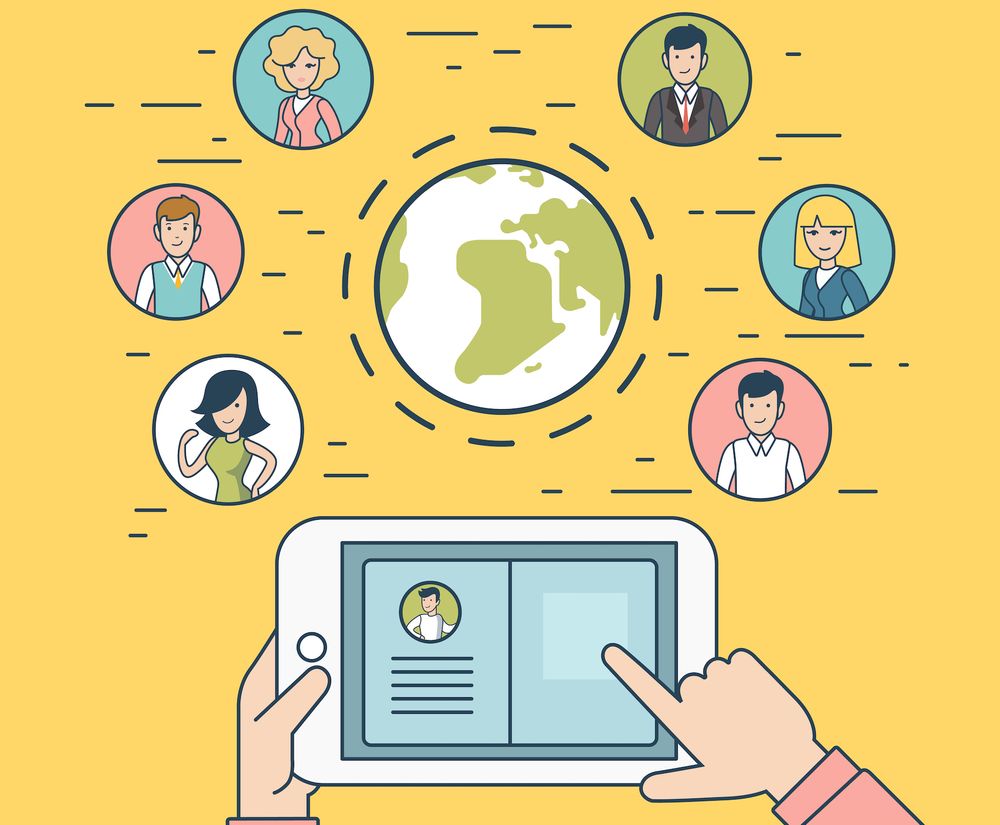What is an Digital Nomad? The Complete Guide to Digital Nomads and Career Choices (2023) |
If you're considering becoming a digital nomad, you're in good company. An analysis by MBO Partners found that 17 million Americans have become digital nomads as of 2023. It also showed that 80% of digital nomads said they were very satisfied with their work and 24% of digital nomads report that they are traveling with children! AND the report found there are 70 million Americans are looking to become digital nomads - and the same level of interest exists across the globe.
In this article we'll provide an overview of what it means to be a digital nomad. We'll also go over some possible pros and cons of the nomadic life, as well as explore a variety of careers that are suitable for digital nomads. In the next article, we'll provide an overview of what you need to know and some tried-and-true strategies to make your nomadic dream into a reality.

((toc))
What exactly is a digital nomad?
Digital nomads are people who travels around the globe while working at home. Digital nomads take advantage of the latest possibilities in digital technology, and usually only need a laptop for earning a livelihood. It allows them to travel, using technologies to run the business of their choice or work in a business that follows a remote work policy.
It's not clear who coined the term digital nomad, however, it became popularized in an article published in 1997 by Tsugio Makimoto as well as David Manners, who argued that technology advancements would enable individuals to go back to a nomad lifestyle and work from anywhere. In 2023, there were 17 million Americans who were digital nomads.
Numerous popular destinations have a strong love-hate relationship with digital nomads. Digital nomads may have a reputation for ruining landscapes and displacing locals. But many countries also see nomads as a chance to attract tourists into the country, and fill labor shortages. The appeal of this was enhanced since the decline of short-term tourism due to the outbreak. A growing number of countries are giving out "digital nomad visas" and encouraging nomadic travelers to come and stay.

How do you became a digital nomad?
There are some good reasons to think about the idea of becoming an online nomad. Of course, the first is travel! If you've always wanted to travel the world and discover new cultures, being digital nomads gives you the opportunity to travel the world.
A lot of digital nomads profit from the costs of living differences between countries. A high income in their country of origin as well as having a lower cost of living in the host country/s is that they are able to enjoy more free cash.
There are some challenges for digital nomads. They often underestimate the toll that is required to reside abroad for prolonged period of time, shut away from the home support network, and within a foreign cultural environment. It is possible to estimate the cost too. While the cost of living might be lower in a host country but they must factor in travel, health insurance, and travel.

Pros and cons of being an online nomad
Pros
- Get to work from stunning, inspirational locations that you love.
- Spend less money in areas where the cost of living than your home country (your savings go further).
- Make new friends across the globe.
- Make the lifestyle you'd like to live and be where you want.
- It's possible to experience personal growth and inspiration unlike you've ever experienced in your own home.
- It is a great learning opportunities from being exposed to various languages, cultures, etc.
- Take advantage of time-zone differences (e.g. working later in the day as well as allowing mornings to be free ).
- Earn by renting out your apartment or home (if appropriate).

Cons
- The loneliness and the isolation of it can be hard to meet new people in unfamiliar places.
- If you are unable to earn the source of income, it could be hard to find another. You may not be legally qualified to work in the host country.
- It can be a challenge for relationships-many nomads struggle with romance and love.
- The unexpected expenses could eat off your savings by living in a less expensive place.
- Time zone variations could be a problem, particularly when you're working when your colleagues are sleeping or reverse.
- Visa and legal issues can cause a lot of anxiety and additional expenses.
- It is important to ensure you are compliant with tax laws in both your home and your host country (some countries expect nomads to pay tax! ).
- Your career can be restricted by distance.
- If you can't access high-speed internet it can hurt your productivity.
- It has an impact on the environment when you traveling, and in certain instances the impact of nomads on local populations (e.g. market for housing ).

Careers for digital nomads
There are a myriad of jobs for digital nomads. In 2025, 32.6 million Americans are expected to work remotely while 16% of firms currently working remotely. This means the possibilities for careers as digital nomads are going to get better and greater. If you go into the office, and you use computers or phones to perform your job, there's a great possibility that your work can be done remotely.
Below are some ideas:
- Community Manager Community Manager: A community manager is someone who oversees the online community and is the ideal job for remote work. Online community platforms that are top of the line allow you to easily manage an effective community. No matter if you're part of the brand or a business or running your own paid community, it's an amazing job for wanderers!

- Freelance Writing Writers who are freelance write for newspapers, magazines and other publications. However, they can also ghostwrite novels for CEOs, or create blogs for companies. Because writing is typically accomplished on their own and on their own, it's an ideal job for a digital nomad.
- Graphic Design Graphic design professionals are able to create some of the most famous brands using an laptop. It's a great digital nomad career.
- Online Tutoring or Teaching the rise of online learning means that online tutoring and teaching is possible for those who are digital nomads, regardless of whether teaching at a virtual college or running an online course of your own.

- Digital Marketing: No matter if you're creating Facebook advertisements or performing SEO, the process of marketing through digital is... the digital. It's a fantastic career to digital-nomads.
- Software Development: Developers of software develop software and tools either for themselves or for a company. The work is done online which makes it a good choice for remote work.
- Web Design: Creating web pages is a lucrative profession to digital nomadic.
- Virtual Assistants: Usually help leaders with administrative tasks, responding to emails, posting on social networks, scheduling appointments, and so on. It's a perfect role for those who work from home.
- Remote Customer Support: When businesses provide customer support online or over the phone, it's not likely to need to be a location for the person providing service. This could be an excellent job for someone who is a digital nomadic.

- Telemedicine: Not every health care can be done via the internet, however a significant amount can. From counseling and psychiatry nurse interviews and specialist consultations, remote healthcare positions are on the rise.
- Market Researcher: When you're doing market research for a business, things like surveys may be done remotely.
- Content Creator Content Creators are on the move, creating podcasts, social media content, YouTube videos and more. If you earn your livelihood through content-whether for a company or for you-you're probably able to do it remotely.
- Consultant: Consulting can be a big bucket, but it is basically about setting up your own business of service in addition to advising businesses on a part-time basis. This is a fantastic career option for remote work.
- Professional Services: Bookkeepers, lawyers, accountants, HR, there are many professional services that lend themselves easily to the digital nomadic lifestyle.
- Service Business: Finally, companies that provide services are ideal for digital nomads. Scientists, architects, conservation scientists, engineers and so on. could be great for remote work depending upon the tasks you perform.

How do you be a digital nomad
- Find a job or earn money that lets you travel: The original digital nomad movement was focussed on digital entrepreneurs. Tim Ferriss' famous book-The 4-Hour Workweek-stressed using technologies to grow flexible businesses and allow freedom to travel (if you want). However, the rise of remote working means the possibility of becoming an online nomad remains possible with a 9-to-5 job.
- Plan ahead: It's improving every day however, being digital nomads is difficult. There are a lot of things to consider, including the possibility of locating accommodation in a different country and managing visas, submitting taxes, logging into your bank from abroad, along with a host of other things (we've added a checklist below). Don't be intimidated-people do this every day. Do get started with your plan.
- Try a test run: Before you decide to become a full-time nomad, you can take a test drive. Spend a few weeks somewhere on a working holiday and test whether it's going to be something you would enjoy. While launching into life as an online nomad may sound beautiful, many find that the negatives mean that this isn't for them.
- Choose your travel style: Do you wish to have your entire year planned out? Or do you want to move from month to month wherever the wind takes you? It's not a bad choice. Plan ahead gives you the advantages of having a wider selection of accommodations pick from as well as cheaper flights However, it also limits the possibility of being spontaneous. Without a plan, you're being spontaneous, but some of your options will be restricted by the flight options and accommodation options readily available. Many nomads work better by having a minimum loose strategy, and in fact planning is part of the enjoyable!
- Take a bag and leave! becoming a digital nomad seems daunting, at the end of the day you're just creating a plan and preparing to live your life somewhere else. Resist the urge to overpack (you'll be thankful you don't need to carry a lot). Start your adventure!

Digital nomad checklist
There are a lot of things to think about from becoming digital nomads. Below are a few tips we've gathered from people who've done it:
- Check your tech and software: Bring your laptop, appropriate tech that you require to do your job, and don't forget the appropriate electrical adapters for any country you go to. Remember that you can buy or rent technical equipment in many countries, too. For example, if you prefer working with a second screen this could be an item you are able to find on arrival.
- Backups to 2-factor IDs: In the past 5 years, 2-factor authentication has been required to sign into everything. If you typically receive texts on your smartphone-but you don't own it, things get more complicated. Create backups of every important login. For anything Google-related it is possible to use the Google authenticator application. In other words, you should think about what you'll do to log into your accounts at banks, use tax software, and so on.
- Calculate tax liabilities: Plan on how you will pay and report taxes from outside the country (if appropriate).
- Have a passport that is current: Take your passport along with all other necessary documents. Remember that some countries can refuse to grant a visa if your passport expires within 6 months, so be sure to have plenty of room for your calendar.
- Get medical insurance: Things occur. Make sure you're covered. Your existing insurance might provide some coverage, but most digital nomads need to purchase additional travel insurance for medical emergencies.
- Make sure you know the requirements for your visa: If you are from the US You can travel to most countries without applying for a visa unless you're planning to stay for an extended duration. If you're planning on a lengthy stay, you might have to get the proper visa at an embassy or consulate before departure. If that's the case you should start earlier to allow you plenty of time.
- Check work requirements: Are you allowed to work in your country of nomadism? Will they try to tax your income? Each nation has their own laws, and it could be difficult to understand. Look up digital nomad blogs and forums, as well in official government sites. Some may be okay with you earning income provided it's in the borders of your country. If you're working for an organization that has office locations in different countries, you might be able get a job in conjunction with them.
- Find train or plane tickets and a place to stay: Platforms like Airbnb are great to do this, however they are constantly updated with new options often. For example, Berlin startup Habyt promises rents for a month. Apps such as Hopper allow you to track flights as well as give suggestions on how to book for the lowest prices.

How to become an internet nomad
- Take a break: Moving from place to place each day can make it hard to remain productive. It also is a strain on your finances. Nomads who have experience know it's best to remain in a single place for weeks and even for months in order in order to build a routine and to save some the cost of living. For example, Airbnb has discounts for month-long bookings which could put the cost of nomad living at or lower than the rent of any city in the U.S.
- Choose a timetable which works for you: It could be difficult to stay productive when you travel. Be sure to create a work schedule that works for you.
- Be in tune with the cultural difference: Nomads face lots of surprises when they try to follow the same rules as they do in their native country. For example, many places won't let you install your laptop in a cafe to work (or even if they do, they don't have wifi). It is necessary to adjust your lifestyle depending on the society you're living located in.

- Find community Digital nomads: Ask them what gets to them and they'll be able to tell you about the loneliness. Discover ways to connect with communities no matter where you're located, whether it's the local gathering for nomads or a community on the internet. (Staying in one place longer will help to make deeper connections ).
- Be cautious: Prior to agreeing to an entire three years trip around the world, start small. Try a few weeks or a month working at a different place. It is possible that it isn't something you enjoy, or maybe it will take longer to do remote work than you think. Ease yourself in.

Get going!
These tips should have encouraged you to begin your own digital nomad adventure! While it can be daunting, the growing popularity of being a digital nomad as well as the tales from thousands of people who love the experience suggests it's at least worthwhile to try it!
If you're looking for a fantastic online business that is suitable for digital nomads come build upon Mighty! It is possible to start a member-driven enterprise that consists of courses, community, coaching as well as live events and premium group.
It's a great spot to create a successful firm that can travel along with you! Try it free for 14 days-no credit card is required.
Get Started With Free Trial Free Trial
Learn How to Take Your Business Online in 3 Steps
